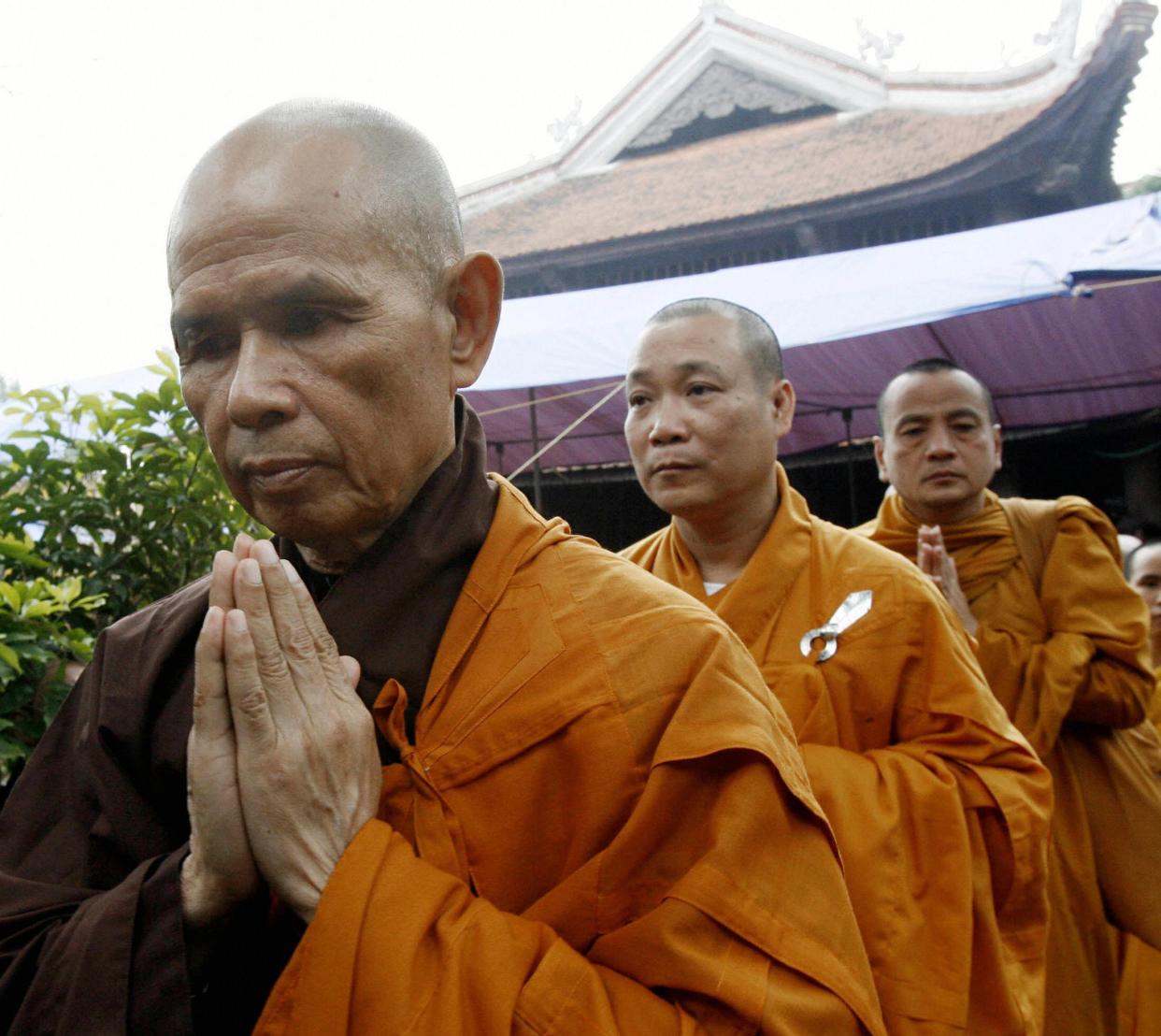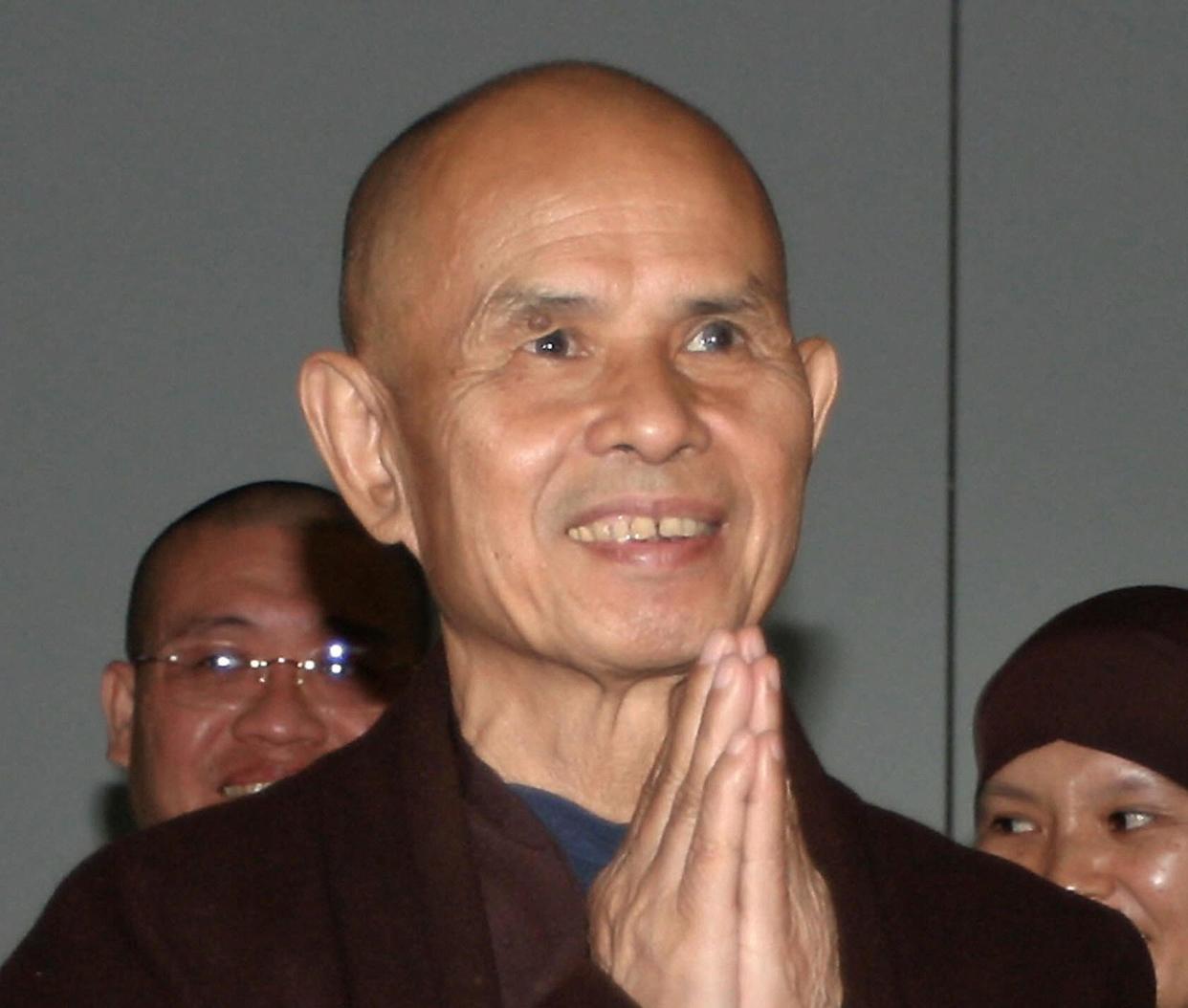Thich Nhat Hanh, world-changing Buddhist, Zen master and peace activist, dies at age 95
Thich Nhat Hahn, the Buddhist monk whose mindful focus and activist teachings changed how the world practices Buddhism, died Saturday morning. He was 95.
Thich Nhat Hanh died peacefully at exactly midnight in his home Tu Hieu Temple in Hue, Vietnam, according to a Facebook post from his account.
Possibly the second-most famous monk in the world, behind only the Dalai Lama, Thich Nhat Hanh’s teachings inspired an entirely new school of Buddhism known as the Plum Village Tradition. It is practiced throughout the world, with the first and largest monastery based near Bordeaux, France.

Thich Nhat Hanh is credited with founding the movement of Engaged Buddhism, which focuses on social activism for peace through Buddhist practices and teachings. Never one to toot his own horn, Thich Nhat Hanh said the idea of Buddhism for social change could be traced to a 13th-century Vietnamese king.
But that man (King Tran Nhan Tong) chose a more private life than Thich Nhat Hanh, whose teachings were so popular that he spoke with presidents and parliaments worldwide.
Even after he suffered a stroke in 2014 that left him unable to speak, Thich Nhat Hanh continued teaching through his words — he’s been credited with writing 100 books, many of them in English. His Facebook page also frequently shared messages of his past teachings.
Thich Nhat Hanh rose to international prominence for his anti-Vietnam War activism, but he was already a well-known monk before his international peace efforts.

Born Oct. 11, 1926, in Hue, Thich Nhat Hanh joined Tu Hieu Temple as a novice at age 16. He quickly worked to adapt Buddhist practices to everyday life, and he was one of the first monks to ride a bicycle.
Thich Nhat Hanh taught at Princeton and Columbia in the early 1960s, touring the world in a doomed attempt to promote a peaceful solution in his native country. The term “Engaged Buddhism” comes from his book “Vietnam: Lotus in a Sea of Fire.”
In 1966, Thich Nhat Hanh talked with Martin Luther King Jr. about the war, and encouraged King to speak out against it. Shortly after, the civil rights icon did just that in a famous speech from Riverside Church in Manhattan.
“We combined our efforts to work for peace in Vietnam and to fight for civil rights in the U.S.,” Thich Nhat Hanh later wrote. “We agreed that the true enemy of man is not man. Our enemy is not outside of us. Our true enemy is the anger, hatred, and discrimination that is found in the hearts and minds of man.”

But Thich Nhat Hanh’s pleas for peace made him an enemy of North and South Vietnam alike. Both countries denied him the right to return to his homeland, and he spent 39 years in exile. During that time, Thich Nhat Hanh built the Plum Village Tradition across the world, spreading his message of activism through Buddhism.
He was finally welcomed home in 2005, and again in 2007, drawing thousands-strong crowds for speeches on both trips. In 2018, he returned for good.
“He has come back to the place where he grew up as a monk,” his disciple Phap Dung told Vox in 2019. “The message is to remember we don’t come from nowhere. We have roots. We have ancestors. We are part of a lineage or stream.”
Upon the news of their founder’s death, the Plum Village website reiterated one of Thich Nhat Hanh’s teachings: “Because we have seen the path, we have nothing more to fear.”
